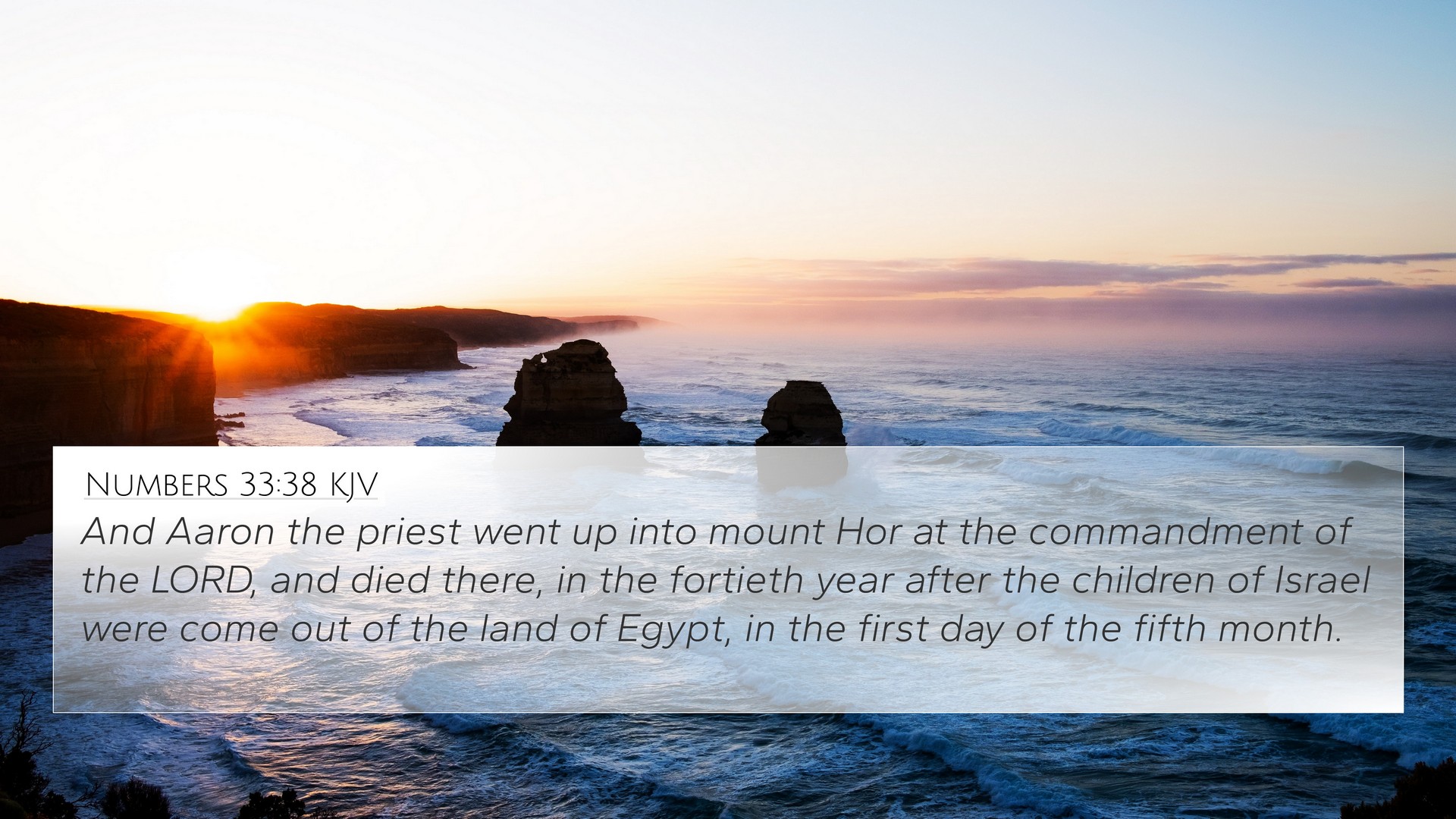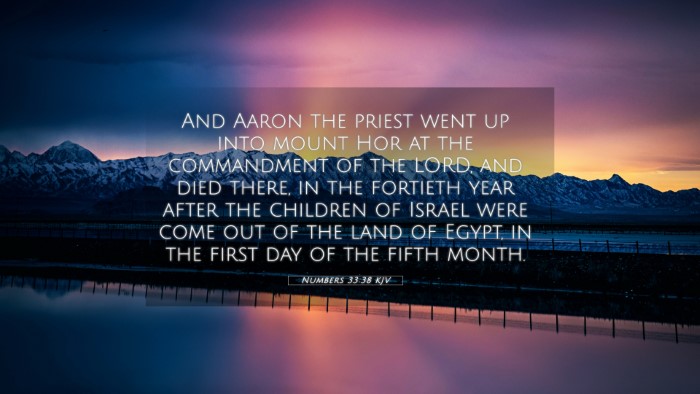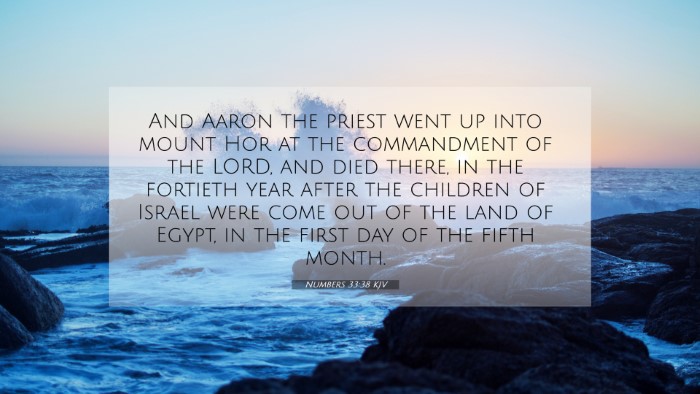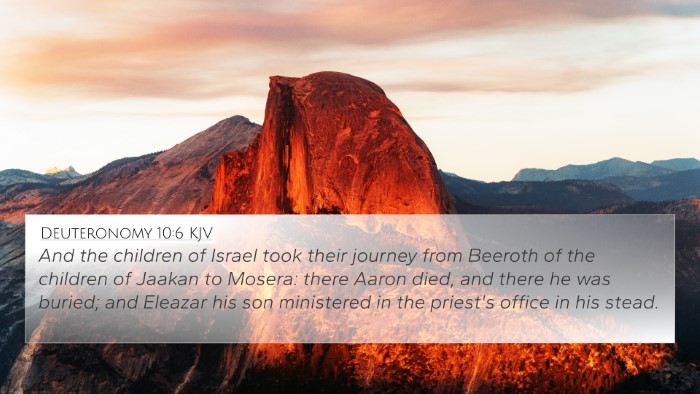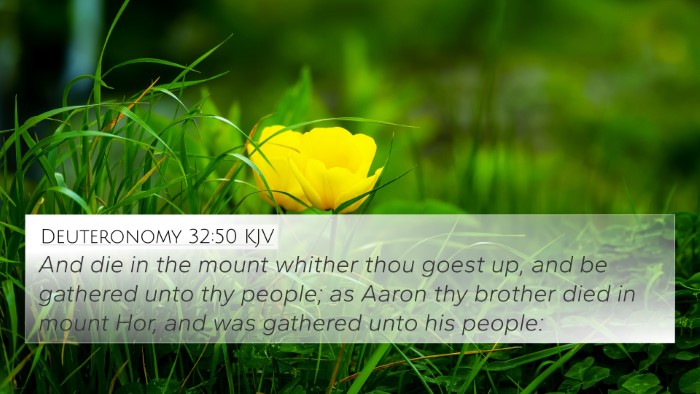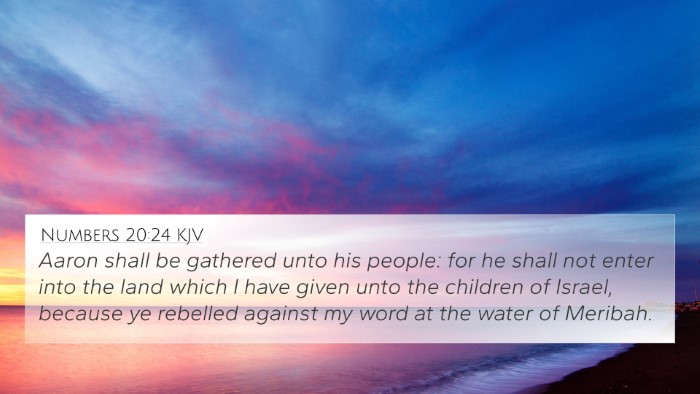Understanding Numbers 33:38
Bible Verse: Numbers 33:38 - "And Aaron the priest went up to mount Hor at the commandment of the Lord, and died there in the fortieth year after the children of Israel were come out of the land of Egypt, in the first day of the fifth month."
This verse marks a significant moment in the journey of the Israelites, highlighting the death of Aaron, the brother of Moses and the high priest. His death is not only pivotal for the Israelite community but also serves as a moment of reflection on leadership, obedience, and the passage of time within the biblical narrative.
Key Themes and Insights
- Divine Command: Aaron's ascent to Mount Hor was in obedience to God's command, emphasizing the crucial relationship between divine instruction and human action.
- Leadership Transition: Aaron's death signifies a transition in spiritual leadership, leading to the appointment of his son Eleazar, which is important in the context of the continuity of priestly service.
- Significance of Time: This event occurs in the fortieth year after the Exodus, marking the end of a generation and the fulfillment of God's promise of the land to the next generation.
- Mortality and Legacy: Aaron's death serves as a stark reminder of human mortality and the lasting impact a leader can have on their community.
Bible Verse Cross-References
Several other Bible verses relate to this passage and can enhance our understanding:
- Exodus 28:1: Discusses the consecration of Aaron and his sons as priests.
- Leviticus 10:1-3: Describes the tragedy of Nadab and Abihu, Aaron's sons, highlighting the priestly responsibilities and their consequences.
- Numbers 20:22-29: Details the death of Miriam, Aaron's sister, and emphasizes the theme of mortality among the leaders of Israel.
- Deuteronomy 10:6: Mentions the burial of Aaron and the legacy he left behind.
- Hebrews 5:4: Addresses the priesthood, emphasizing the divine appointment required to serve as a priest.
- Numbers 27:18-23: Discusses the transfer of leadership from Moses to Joshua, mirroring the transition following Aaron’s death.
- Matthew 17:1-3: Reflects on the appearances of Moses and Elijah, putting Aaron's priesthood in the context of complete redemptive history.
Thematic Bible Verse Connections
The death of Aaron brings to light various connections and themes across Scripture:
- Obedience to God’s Will: Aaron's obedience is paralleled in other scriptures that emphasize the importance of following God's commandments (e.g., 1 Samuel 15:22).
- Significance of Leadership: Other passages highlight the vital role of godly leadership, such as in Proverbs 11:14, which underscores the safety found in wise counsel.
- Legacy of the Faithful: The Biblical narrative consistently honors the legacy of faithful leaders, linking Aaron to figures like David and their impact on God’s people.
Tools for Bible Cross-Referencing
To gain deeper insights into Numbers 33:38, one can utilize various tools and methods:
- Bible Concordance: A useful tool for finding relevant terms and their occurrences throughout Scripture.
- Bible Cross-Reference Guide: A resource that provides related verses and themes, helping to connect different parts of the Bible.
- Cross-Referencing Bible Study: Methods that encourage exploring the connections between passages to better understand biblical themes.
- Bible Reference Resources: Various study materials that aid in linking scriptures within their theological and historical context.
Conclusion
Numbers 33:38 encapsulates key elements of obedience, leadership transition, and the importance of evaluating one's legacy in faith. By cross-referencing this verse with other significant scriptural passages, a richer understanding of its implications emerges, illustrating how the Bible interacts and weaves together the narratives of its key players.
Further Study
For those interested in exploring the connections between Aaron's role, his demise, and the teachings of Jesus and principles in the New Testament, studying the links between Numbers 33:38 and passages in the Gospels is a valuable pursuit. This thematic exploration not only enriches one’s understanding of Scripture but also invites reflection on how leadership is portrayed through biblical history.
